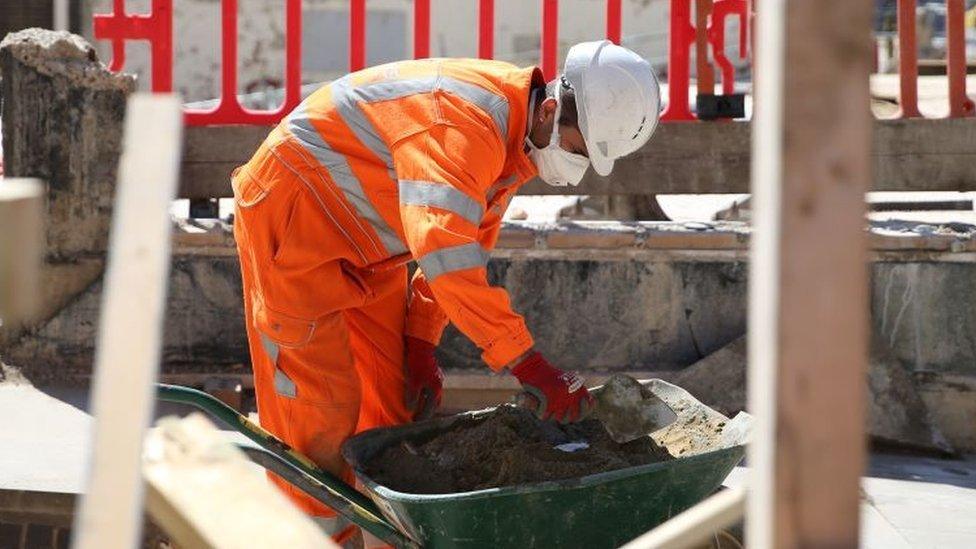Economic output falls slightly in second quarter of 2022
- Published

Retail sales figures were particularly weak, falling 2.4% from April to June, compared to January to March
Northern Ireland's economy began to lose momentum in the second quarter of this year, the latest official data suggests.
Economic output was 2.4% higher than the same period last year but fell by 0.1% compared to the first quarter.
That weaker short-term performance was mainly related to the service sector, which is the largest part of the economy.
Retail sales figures were particularly weak, falling 2.4% over the quarter.
The figures come the Northern Ireland Statistics and Research Agency (Nisra) and are broadly in line with the wider UK performance.
Nisra said that while Northern Ireland output had fallen back marginally, it broadly remained at a 15-year high point.
However Northern Ireland's economy still remains 0.2% smaller than the peak of the 2007 housing bubble.
'Mini-budget mayhem'
Latest official figures for the construction sector also point to weakness in that sector: output was down by almost 4% on an annual basis and by 0.6% on the quarter.
Construction has faced acute pressures from rising material costs and supply chain delays.
The Nisra figures cover a time period before the "mayhem which followed Friday's mini-budget" but a "nevertheless very interesting," according to the Ulster University Business School's senior economist Esmond Birnie.
He suggested it was "very likely" that Northern Ireland along with the rest of the UK has "already entered into recession".
"Latest indicators at the UK-wide level suggest that UK output will decline in the third quarter," he said.
"It is overwhelmingly likely that Northern Ireland will do likewise."
Mr Birnie added: "Commentators such as the Bank of the England or the international body OECD were already predicting that next year would be characterised by close-to-zero growth or even negative growth even before the mayhem which followed Friday's mini-budget."

Liz Truss told the BBC that the action taken in the past week had opened up new road projects and new infrastructure projects
Prime Minister Liz Truss told BBC Radio Kent that the action taken in the past week had opened up new road projects and new infrastructure projects.
But one industry body says that's not enough to help businesses in Northern Ireland.
Mark Spence, from the Construction Employers Federation said: "That will benefit some of the companies based in Northern Ireland who work in GB. Unfortunately in terms of infrastructure in Northern Ireland, that all comes out of the block grant we get from Westminster.
"What's clear is that block grant isn't increasing, we're living within a finite budget, and the problem is that the raging inflationary costs within construction means you get much less for the same budget."
Many construction deals are done based on a fixed price contract - a sum that is agreed before the work is started, and doesn't depend on the length of time the work will take.
Mr Spence said: "The amount of construction available to be done within the public-sector budget is decreasing day on day.
"There are companies out there today that had started contracts before these costs really kicked in who undoubtedly are incurring a loss just to complete those contracts, but they're completing them. They're taking the hit.
"But they'll be very careful before they sign the next contract."
- Published28 September 2022

- Published15 September 2022
